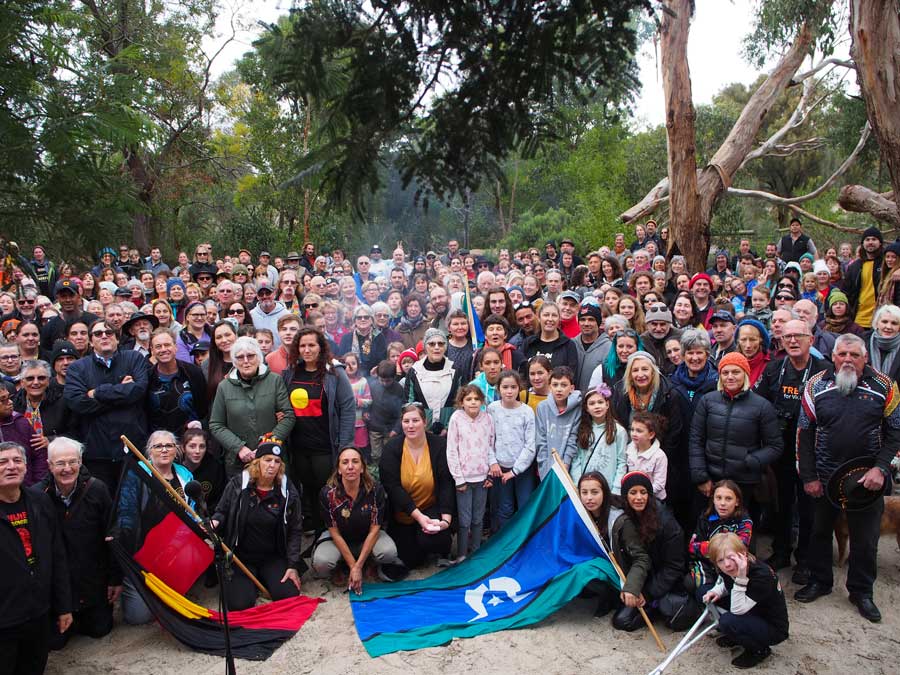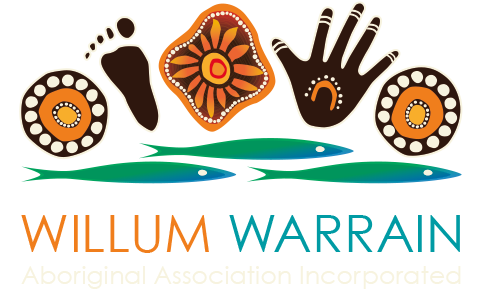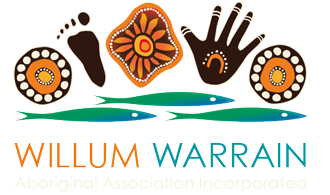Being an ally of
Willum Warrain
Your organisation as part of Settler Australia, has received a positive legacy as a result of the dispossession of our peoples.
Accepting your organisation’s dominant culture privilege and its responsibilities is an important part in building a constructive relationship with our local Aboriginal community.
It is your organisation’s responsibility to ensure that we are a strong voice on behalf of our local Aboriginal and Torres Strait community by recognising and resourcing the inherent possibilities in our mob.
The best way to do this is to let us set the parameters of our partnership, to listen to our realities, to hear from us about the issues and the solutions, and to learn about all the complexity within.
This is what walking together with us means.

CASE STUDY
Reflections from Libby Porter
We began with relationship building, my colleague Lauren having made contact with Willum Warrain and suggesting there were mutual interests. We sat over cups of tea together to learn about what matters to the people at Willum Warrain. It was important to get to know the people and the place, and to allow people at Willum Warrain to get to know me, understand my philosophy and motivations. This requires investing time and energy, even when it might feel like (from our privileged position within busy demanding organisations) that ‘not much is happening’.
Those conversations revealed there was indeed shared interests in place, and the importance of place to healing and community. We had a vague idea that there would be interest in working together, if the time arose. Some months later, a funding opportunity came across my desk – some seedcorn research funds within RMIT. Once Willum Warrain had agreed that this was something that would be of value, I put together an application, checking all the time that the words I was using resonated with people at Willum Warrain and were in line with their expectations. It would not have been possible to do this work without a strong and trusting relationship already there.
The project was fully co-designed, meaning that the first thing we did together was sit down and work out with the Board at Willum Warrain what a project that delivers value to the organisation would look like. Once we had a shared understanding of that, I worked up a design for how to do it, checking all the time that I was still understanding the values and aspirations in the right way. We built into the budget funds to support Willum Warrain members to gain extra skills by working with me in a paid capacity. We ensured that Willum Warrain controlled how the work would be done, who would be involved and had full cultural authority and ethical oversight of the project.
This is different from how most research projects by Universities gets done – as it is the researcher normally seen as the ‘chief investigator’ who runs the show. Working in partnership and taking responsibility for dominant settler culture privilege, such as I have individually and RMIT has as an institution, requires letting that desire for control go. Being in a fully accountable relationship with Willum Warrain was an incredibly rich and rewarding experience from which I have learnt an enormous amount about the possibilities of true partnership.


